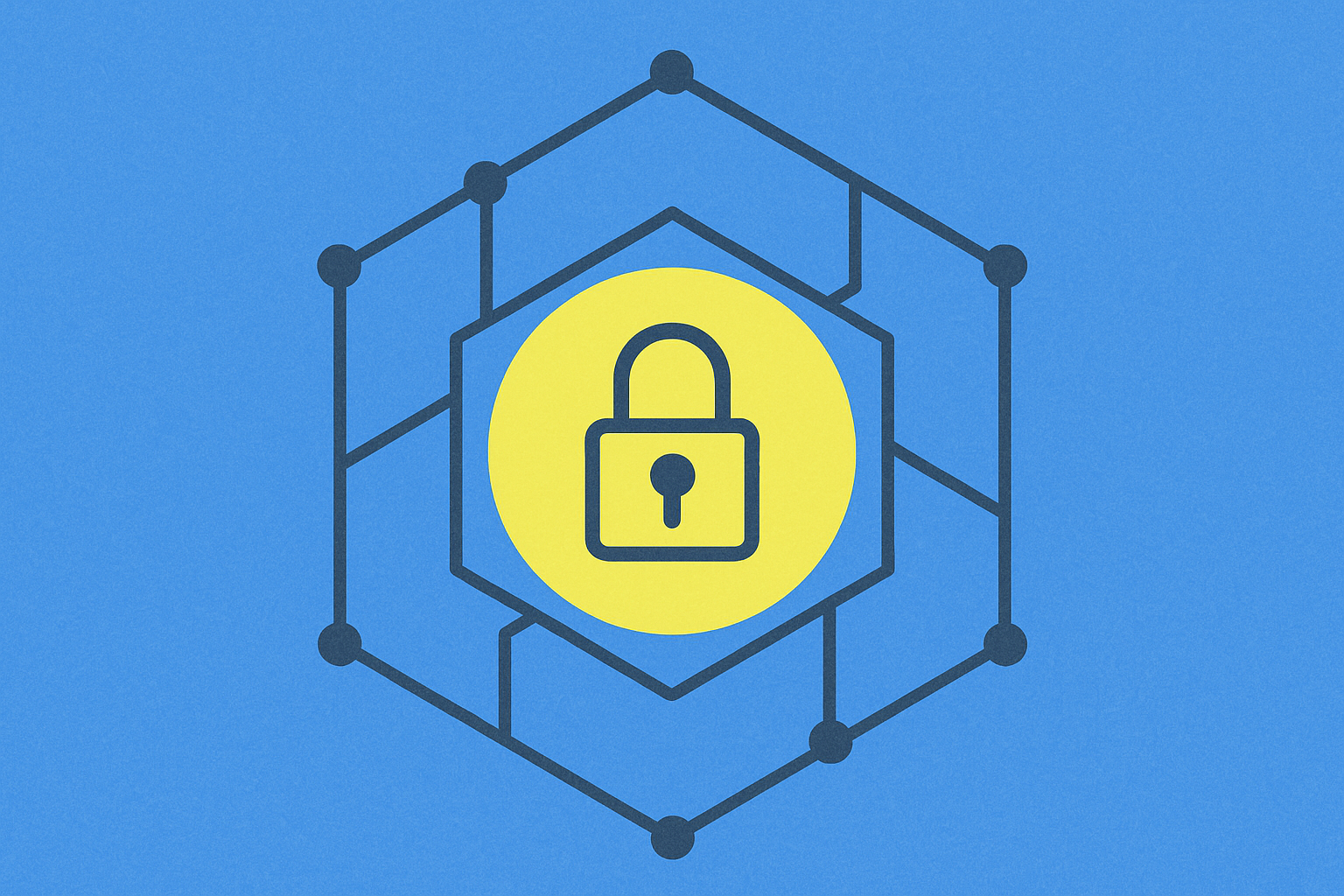Web3 Cüzdan nedir? Yeni Başlayanlar için Kapsamlı Bir Rehber


Web3 Cüzdanlarını Anlamak: Merkeziyetsiz Ağa Açılan Kapınız
Web3 cüzdanlar, merkeziyetsiz web'de gezinmek için temel araçlar olarak ortaya çıkmış ve blockchain teknolojisi ile dijital varlıklarla etkileşim şeklimizi devrim niteliğinde değiştirmiştir. Bu yenilikçi cüzdanlar, kullanıcılar ile merkeziyetsiz uygulamalar (dApp'ler) geniş ekosistemi arasındaki köprü işlevini görmektedir.kripto paralar, ve blockchain ağları. Fiziksel para depolayan geleneksel cüzdanların aksine, web3 cüzdanları dijital varlıkları güvenli bir şekilde yönetir ve kullanıcılara fonları ve verileri üzerinde tam kontrol sağlar. Web3 cüzdan temellerini anlamak, blockchain teknolojisinin potansiyelini keşfetmek ve gelişen dijital ekonomiye katılmak isteyen herkes için hayati öneme sahiptir. Bu cüzdanlar yalnızca kripto para birimlerini depolamakla kalmaz, aynı zamanda kullanıcıların akıllı sözleşmelerle etkileşimde bulunmasını, merkeziyetsiz finans (DeFi) protokollerine katılmasını ve değiştirilemez tokenleri (NFT) yönetmesini sağlar. Web3 cüzdanları ile geleneksel dijital cüzdanlar arasındaki temel fark, merkeziyetsiz doğalarındadır; bu da kullanıcılara dijital varlıkları üzerinde artırılmış güvenlik, gizlilik ve mülkiyet sunar. Blockchain teknolojisinin benimsenmesi devam ederken, bir web3 cüzdan kullanmayı öğrenmek, kripto para meraklıları ve blockchain yeni başlayanları için gerekli bir beceri haline gelmiştir.
Doğru Web3 Cüzdanını Seçmek: Yeni Gelenler İçin En İyi Tercihler
Yeni başlayanlar için en iyi web3 cüzdanlarını seçmek, piyasada mevcut olan çok sayıda seçenek göz önüne alındığında zorlayıcı bir görev olabilir. Web3 cüzdanlarını değerlendirirken, güvenlik özellikleri, kullanıcı arayüzü, desteklenen kripto paralar ve çeşitli blockchain ağlarıyla uyumluluk gibi faktörleri dikkate almak önemlidir. Yeni başlayanlar için kullanıcı dostu arayüzler ve sağlam güvenlik önlemleri son derece önemlidir. Yeni başlayanlara hitap eden en yüksek puan alan web3 cüzdanlarından bazıları MetaMask, Trust Wallet ve Coinbase Wallet'tır. Bu cüzdanlar, sezgisel tasarımlar, güçlü güvenlik protokolleri ve geniş bir kripto para ve blockchain ağı yelpazesi için destek sunar. Örneğin, MetaMask, Ethereum tabanlı dApp'lerle sorunsuz entegrasyonu ve tarayıcı uzantısı işlevselliği sayesinde popülerlik kazanmıştır. Trust Wallet ise çoklu blockchain desteği ile mobil öncelikli bir deneyim sunar. Tanınmış kripto para borsası tarafından desteklenen Coinbase Wallet, kullanıcı dostu bir arayüz ve geliştirilmiş güvenlik özellikleri sunar. Web3 cüzdanlarını geleneksel cüzdanlarla karşılaştırdığınızda, ilki varlıklar üzerinde daha fazla kontrol, geliştirilmiş gizlilik ve merkeziyetsiz uygulamalarla doğrudan etkileşim kurabilme yeteneği sunar. Bu tablo, anahtar farklılıkları göstermektedir:
| Özellik | Web3 Cüzdan | Geleneksel Cüzdan |
|---|---|---|
| Varlık Kontrolü | Tam kullanıcı kontrolü | Vasıflı (üçüncü taraf tarafından kontrol edilen) |
| Gizlilik | Geliştirilmiş gizlilik | Sınırlı mahremiyet |
| Fonksiyonellik | dApp'lerle etkileşimde bulunun | Sadece temel işlemlerle sınırlıdır |
| Güvenlik | Kullanıcı tarafından yönetilen güvenlik | Hizmet sağlayıcıya bağlı |
| Blockchain Etkileşimi | Doğrudan etkileşim | Blok zinciri etkileşimi yok |
Web3 Cüzdan Güvenliği Ustalaşmak: Dijital Varlıklarınızı Korumak için Temel İpuçları
Dijital varlıklarınızın güvenliğini sağlamak, web3 cüzdanları kullanırken son derece önemlidir. Sağlam web3 cüzdan güvenlik ipuçlarını uygulamak, yetkisiz erişim ve potansiyel fon kaybı riskini önemli ölçüde azaltabilir. Cüzdan güvenliğinin en kritik yönlerinden biri, özel anahtarların ve kurtarma cümlelerinin doğru yönetimidir. Kullanıcılar bu hassas kimlik bilgilerini asla kimseyle paylaşmamalı ve bunları güvenli bir şekilde çevrimdışı, tercihen birden fazla güvenli konumda saklamalıdır. İki faktörlü kimlik doğrulama (2FA) etkinleştirmek, cüzdanınıza ekstra bir güvenlik katmanı ekleyerek yetkisiz kişilerin erişim sağlamasını önemli ölçüde zorlaştırır. Düzenli yazılım güncellemeleri, potansiyel zayıflıkları gidermek ve cüzdanınızın en son güvenlik özellikleriyle donatıldığından emin olmak için kritik öneme sahiptir. dApp'lerle veya tanıdık olmayan web siteleriyle etkileşimde bulunurken, platformun doğruluğunu doğrulamak, kimlik avı saldırılarından kaçınmak için gereklidir. Büyük miktarda kripto para saklamak için donanım cüzdanları kullanmak, özel anahtarlarınızı çevrimdışı tutarak ek bir güvenlik katmanı sağlar. Varlıklarınızı birden fazla cüzdanda çeşitlendirerek, bir cüzdanın ele geçirilmesi durumunda tüm fonlarınızı kaybetme riskini de azaltabilirsiniz. Bu güvenlik önlemlerini uygulayarak, kullanıcılar dijital varlıklarının korunmasını önemli ölçüde artırabilir ve daha güvenli bir web3 deneyiminin tadını çıkarabilir.
Gate Web3 Cüzdan: Sorunsuz Blockchain Etkileşimleri için Son Teknoloji Özelliklerini Keşfetmek
Gate Web3 cüzdanı, kullanıcı deneyimini ve güvenliğini artırmak için tasarlanmış kapsamlı bir özellik seti sunarak blockchain ekosisteminde sağlam bir oyuncu olarak kendini kanıtlamıştır. Bu yenilikçi cüzdan, kullanıcıların dijital varlıklarını yönetmeleri ve çeşitli blockchain ağlarıyla etkileşimde bulunmaları için birleşik bir çözüm sağlayarak Gate'in sağlam ticaret platformu ile sorunsuz bir şekilde entegre olur. Gate Web3 cüzdanı, hem acemi hem de deneyimli kullanıcılara hitap eden kullanıcı dostu bir arayüze sahiptir; bu da onu merkeziyetsiz finans dünyasını keşfetmek isteyenler için ideal bir seçim haline getirir. Gate Web3 cüzdanının öne çıkan özelliklerinden biri, kullanıcıların tek bir arayüzden birçok blockchain ağı ile etkileşimde bulunmasına olanak tanıyan çok zincir desteğidir. Bu işlevsellik, birden fazla cüzdana olan ihtiyacı ortadan kaldırır ve çeşitli kripto varlıkları yönetme sürecini basitleştirir. Cüzdan ayrıca, kullanıcıların varlıklarının yetkisiz erişime karşı korunduğundan emin olmak için biyometrik kimlik doğrulama ve çoklu imza desteği gibi gelişmiş güvenlik önlemleri sunar. Gate'in yeniliğe olan bağlılığı, sorunsuz NFT yönetim yetenekleri ve popüler DeFi protokolleri ile entegrasyon gibi yeni özelliklerin sürekli geliştirilmesinde kendini göstermektedir. Cüzdanın entegre DEX agregatörü, kullanıcıların çeşitli merkeziyetsiz borsa üzerinden rekabetçi oranlara erişimini sağlayarak ticaret verimliliklerini artırır. Güçlü özellik seti ve kullanıcı deneyimine odaklanmasıyla Gate Web3 cüzdanı, blockchain etkileşimleri için kapsamlı ve güvenli bir platform arayanlar için önde gelen bir çözüm olarak kendini konumlandırmıştır.

Gate Cüzdan: 2025'te Web3 için Güvenli Çok Zincirli Çözüm

Spot Cüzdan Güvenliği: 2025 için Temel Özellikler ve Kullanım Kılavuzu

Web3 cüzdan Yeni Başlayanlar Rehberi: Merkezi Olmayan Finansın Yeni Dünyasını Keşfetmek

En iyi Web3 cüzdan: 2025'te akıllı ve güvenli varlık yönetiminin yeni bir çağı

Web3 Cüzdan nedir? 2025'te Web3 Cüzdanlar için Kapsamlı Bir Rehber

Web3 Cüzdanlarını Anlamak: Dijital Varlık Yönetiminin Geleceğine Kapsamlı Bir Rehber

Dropee Günlük Kombinasyonu 11 Aralık 2025

Tomarket Günlük Kombinasyonu 11 Aralık 2025

Merkeziyetsiz Finans'ta Geçici Kayıp Nedir?

Kripto Parada Çifte Harcama: Önleme Stratejileri

Kripto Ticaretinde Wyckoff Yönteminin Anlaşılması





